If you have questions about these women, the book, or women in politics, I will do my best to answer.
Christine Todd Whitman
“The enthusiasm for politics I saw at home was contagious and it was easy for a child who adored 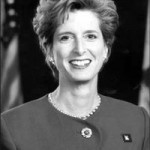 sports, as I did, to become engaged in the keen competition of the process. That early sense of excitement about practical politics has never left me.”
sports, as I did, to become engaged in the keen competition of the process. That early sense of excitement about practical politics has never left me.”
Christine Todd Whitman served as New Jersey’s governor from 1994 to 2001.
Despite being born into a wealthy family with deep connections to the Republican Party, she, like the other trailblazers, had to find her own way. Her tax cuts made her a star of the Republican Party, but her moderate social views collided with its growing right wing. It did not take long before right-wing pundits branded her an elitist country club liberal, and she narrowly won reelection in 1997. Continue reading
Barbara Hughey Roberts
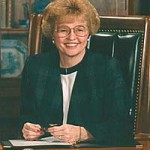 “I just think of it as having been willing to test myself against the challenges. I think it is like anything…the only way we know we can’t do something is that if we tried it and failed.”
“I just think of it as having been willing to test myself against the challenges. I think it is like anything…the only way we know we can’t do something is that if we tried it and failed.”
Barbara Hughey Roberts served as Oregon’s governor from 1991 to 1995.
Divorced with two children, she was working full-time when she began her political journey as a citizen lobbyist working to persuade the legislature to provide education for children with disabilities. Her success reinforced her belief that one person can make a difference. Warm and optimistic, she was a liberal Democrat who spoke her mind. Continue reading
Madeleine May Kunin
 “There is nothing like having a strong belief about something, being able to articulate it, and then see it reflected in policy decisions. It makes you feel connected with the world. And that is possible through politics. One of the best kept secrets about politics is that it is fun, it is engaging, it is interesting. You have better conversations in political circles than you do in most other circles. You don’t get bored.”
“There is nothing like having a strong belief about something, being able to articulate it, and then see it reflected in policy decisions. It makes you feel connected with the world. And that is possible through politics. One of the best kept secrets about politics is that it is fun, it is engaging, it is interesting. You have better conversations in political circles than you do in most other circles. You don’t get bored.”
Madeleine May Kunin served as Vermont’s governor from 1985 to 1991.
She arrived in New York when she was six years old with her widowed mother and elder brother to escape Hitler’s march through Europe. Active in the community, she began her political journey in 1972 as a state legislator. She lost her first race for governor but was successful the next time around. As a Jew, feminist, and progressive Democrat, she thought she was perhaps too different too succeed in politics, but those factors shaped her values. Continue reading
Martha Layne Collins
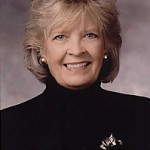 “Leaders are people with heart and passion, and the courage to strike out and speak out. The heart to say this is wrong or this needs to change. Be the one to speak up, to advocate for what you believe in. Set the goals that stretch you and the people in your workplace and in your communities. Sometimes we need to be the voice for the people who can’t speak for themselves. That’s very important.”
“Leaders are people with heart and passion, and the courage to strike out and speak out. The heart to say this is wrong or this needs to change. Be the one to speak up, to advocate for what you believe in. Set the goals that stretch you and the people in your workplace and in your communities. Sometimes we need to be the voice for the people who can’t speak for themselves. That’s very important.”
Martha Layne Collins served as Kentucky’s governor from 1983 to 1987.
A former teacher and active Democratic Party volunteer, she was first elected to office in 1975 as clerk of the Kentucky Court of Appeals. She was elected lieutenant governor in 1979. When she was elected governor, the press wondered whether this former beauty queen was bright enough to lead and tough enough to succeed in politics. She was. Continue reading
Dixy Lee Ray
“The governor, as a single individual, stands out and is therefore held responsible for everything—e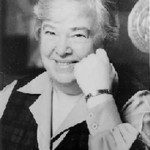 ven things that don’t come under your jurisdiction at all. You’re dealing with problems on a daily basis that are very intractable. Many of them don’t really have solutions and yet you have to do everything you can and some progress can be made.”
ven things that don’t come under your jurisdiction at all. You’re dealing with problems on a daily basis that are very intractable. Many of them don’t really have solutions and yet you have to do everything you can and some progress can be made.”
Dixy Lee Ray served as Washington’s governor from 1977 to 1981.
With a Ph.D. in biology from Stanford University, she taught at the University of Washington before becoming the first woman to head the Atomic Energy Commission in 1973. A nominal Democrat with no prior political experience, “The extraordinary lady from Fox Island,” as her campaign literature called her, won the governorship with a low-budget campaign that emphasized her populist roots, quick wit, and outsider status. Continue reading
Ella T. Grasso
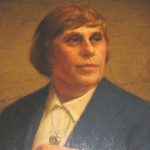 “Pioneering in any area is always exciting and I recommend it. There are new worlds to conquer. The challenge of governing is immense. The privilege of serving people is to my thinking a high calling that imposes awesome responsibility and demands rapid growth—the adding of an extra dimension to our lives. I greet each day with enthusiasm—nearly always.”
“Pioneering in any area is always exciting and I recommend it. There are new worlds to conquer. The challenge of governing is immense. The privilege of serving people is to my thinking a high calling that imposes awesome responsibility and demands rapid growth—the adding of an extra dimension to our lives. I greet each day with enthusiasm—nearly always.”
In 1974, Ella Tambussi Grasso was the first woman in the U.S. to be elected state governor in her own right. She served as Connecticut’s governor from 1975 to 1980. Ella, daughter of immigrants, attended Mount Holyoke College on a scholarship. Married with two small children, she began her political career in 1952 as a state legislator. She went on to serve three terms as Connecticut’s secretary of the state and two terms as a U.S. representative to congress before running for governor. Continue reading